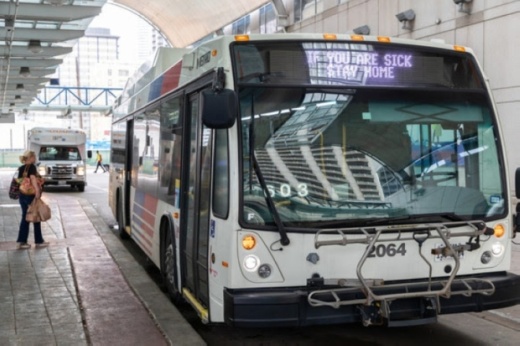The effects of the COVID-19 pandemic, including the region’s economic downturn, the transit provider's reduction in service and falling oil prices, are expected to reduce anticipated revenue for the transit provider, said Phil Brenner, METRO director of management and budget.
“COVID-19 and the collapse of oil prices in the Houston economy are going to affect us,” he said.
About one third of Houston’s economic output is tied directly to oil and gas, according to the Greater Houston Partnership. Sales tax revenue makes up the vast majority of METRO’s revenue—at least 70%—and is collected via a one-cent tax throughout its transit service area.
A boon for the transit provider comes in the form of expected federal funding from the over $2 trillion Coronavirus Aid, Relief, and Economic Security Act, which set aside $25 billion for the nation's transit agencies.
METRO estimates it will use $180 million out of an expected total CARES Act grant of $249 million to reimburse operating expenses.
With the help of the CARES Act funds, overall revenues are expected to be $10.2 million lower than what was budgeted for FY 2019-20, which ends Sept. 30, Brenner said, with $1.04 billion as compared to the budgeted $1.06 billion.
Shaping such forecasts is early sales tax revenue data from May 2020, which shows a $10.7 million shortfall, though it should be noted that May sales tax revenue data comes from March activity.
Expenditures, on the other hand, are expected to come in $172.4 million under budget, at $973.6 million instead of $1.146 billion.
However, all data could see changes when updated later into the year, METRO CEO and President Thomas Lambert said.
“What we’re seeing here we may need to take down even more,” Lambert said to the committee.





